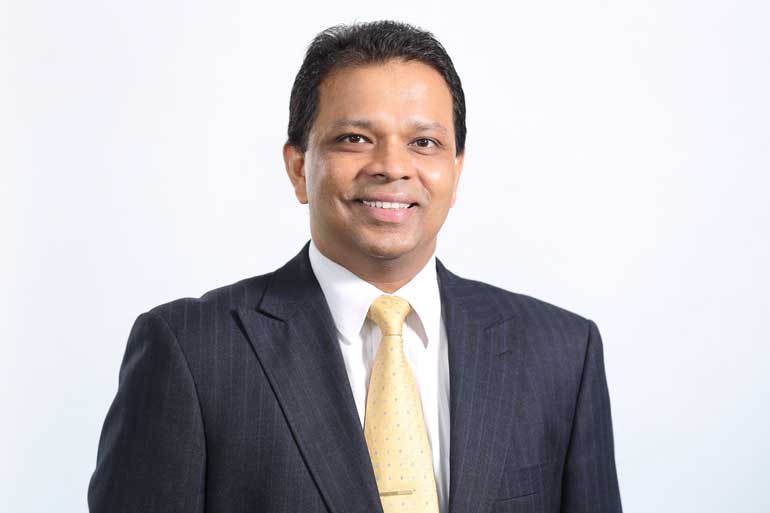Thursday Feb 26, 2026
Thursday Feb 26, 2026
Thursday, 15 October 2015 00:00 - - {{hitsCtrl.values.hits}}
 CEO of HNB,Jonathan Alles
CEO of HNB,Jonathan Alles
Organised by the Bar Association of Sri Lanka, in collaboration with the Sri Lanka Judges Institute & Clearing Association of Bankers, the Seminar on the Cheque Imaging and Truncation System (CITS) and New Banking Systems was held on 3 October at the Balmoral ballroom of the Kingsbury Hotel, Colombo. Among the prestigious participants was Jonathan Alles, CEO of HNB, who was a part of panel and addressed the audience on the topic of new practices in banking and what the future holds. Alles also spoke on areas in digital banking and the readiness of the country’s judiciary towards it.
In a Q&A session, Alles was asked to do describe new banking practices. He replied: “New banking practices on payments are more aligned toward digitally processed transactions. Different countries have adopted several P2P, P2B and B2P strategies in order to facilitate payments electronically instead of using typical paper based instruments. In Sri Lankan context, banks offer internet banking services, mobile banking services, ATMs, etc., for such payments which are using multiple payment networks based on the need namely SLIPS (Sri Lanka Interbank Payments), RTGS (Real Time Gross Settlements) and within own bank transfers. Latest addition to these networks is CEFTS (Common Electronic Fund Transfer Switch), which facilitates real time fund transfers between banks.”
Speaking on the global scenario of the topic Alles stated that the global cheque circulation was facing decline, a trend, which could be seen even in neighbouring countries. However, Alles claimed that the cheque circulation in Sri Lanka has been growing over the last few years.
Alles went on to explain his view on the current developments in the banking industry when it comes to the use of cheques and the extent to which banks perform transactions based on the electronic image of the cheque.
“Current cheques are scanned by the banks as per the Lanka Clear specifications and retained within the systems of the bank. Hence the integrity of the cheque images is ensured.
There are certain regions i.e. Europe, Australia etc. that have introduced applications for the customer to scan the cheque by using a smart phone and push to the respective bank for clearing. However, control remains with the paying bank for cheque number matching and signature verification.
Advance payments and cash management systems have more control as banks print the cheques on behalf of the customer and the paying bank will always have a record of the amount, payee, date, value and cheque number of each cheque. This completely eliminates the risks of alteration compared to a standard practice of issuing cheque-books where banks will have no record about the payee, amount and date until the presentment.”
“The legal system should be ready to accept a scanned image by a bank as a secure element. As per the electronic transactions act, ‘No data message, electronic document, electronic record or other communication shall be denied legal recognition, effect, validity or enforceability on the ground that it is in electronic form’.” Replied Alles, when questioned about the challenges to be faced in promoting the electronic image to the legal fraternity.
Alles further stated that he expected the legal fraternity “to update the necessary laws and regulations to support Sri Lanka’s digital transformation journey” to aid the promotion of the use the CITS.
When asked about his viewpoint on the use of cheques in transactions, Alles had this to say, “Paper based cheques which is costly and cumbersome should be phased out as a national strategy and the community should be encouraged to use more electronic mode of transactions which are faster, efficient, cost effective and secure.”